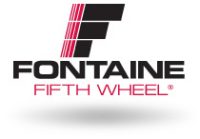The month of April brought disheartening news for the trailer industry, as trailer orders experienced a significant decline of 49% compared to the same period last year. This sudden drop has raised concerns and sparked discussions within the transportation and logistics sectors. In this blog post, we will delve into the reasons behind this decline, analyze its implications for the industry, and explore potential strategies that fleet managers and trailer manufacturers can adopt to navigate these challenging times.
Factors Contributing to the Decline:
Several factors have contributed to the sharp decline in trailer orders. Firstly, the ongoing global semiconductor shortage has disrupted supply chains across various industries, including automotive and transportation. This shortage has impacted the production of trailers, leading to delays and reduced availability. Secondly, the COVID-19 pandemic continues to impact the industry, causing uncertainty and volatility in the market. Economic fluctuations and supply chain disruptions have influenced the purchasing decisions of fleet operators, leading to a cautious approach in trailer acquisitions. Lastly, rising material costs, including steel and aluminum, have also played a role in the decline, making trailers more expensive and affecting the profitability of fleet owners.
Implications for the Industry:
The significant decline in trailer orders has various implications for the transportation industry. Firstly, trailer manufacturers are facing challenges in maintaining their production schedules and meeting customer demands due to supply chain disruptions and component shortages. This could lead to longer lead times and potential delays for fleet operators waiting to expand their fleets. Secondly, reduced trailer orders can impact the revenue and profitability of trailer manufacturers, potentially leading to downsizing or production adjustments. Moreover, fleet operators may face challenges in replacing aging trailers or expanding their capacities, which could limit their operational efficiency and ability to meet customer demands.
Strategies for Fleet Managers and Trailer Manufacturers:
In light of the decline in trailer orders, fleet managers and trailer manufacturers can adopt various strategies to navigate these challenging times. Firstly, it is crucial to enhance communication and collaboration between fleet operators and trailer manufacturers to better understand and address supply chain challenges. This can involve establishing long-term partnerships, sharing forecasts, and exploring alternative sourcing options to mitigate the impact of component shortages. Additionally, fleet managers can focus on optimizing their existing trailer fleets through regular maintenance and repairs, ensuring maximum operational efficiency.
Furthermore, exploring alternative trailer financing options, such as leasing or rental agreements, can provide flexibility and help manage costs during periods of market uncertainty. Fleet managers can also evaluate their operational needs and consider incorporating intermodal solutions or optimizing trailer utilization through load consolidation and route optimization.
Trailer manufacturers, on the other hand, can leverage advanced technology and automation in their production processes to enhance efficiency and reduce lead times. Collaborating with suppliers to secure a stable supply of critical components is also essential. Additionally, manufacturers can explore diversifying their product offerings, such as specialized trailers for specific industries or lightweight trailers to address fuel efficiency concerns.
Conclusion:
The decline in trailer orders during April has undoubtedly posed challenges for the transportation industry. Understanding the factors behind this decline and the implications it carries is crucial for fleet managers and trailer manufacturers. By embracing proactive strategies, including effective communication, optimizing existing fleets, exploring alternative financing options, and embracing technological advancements, stakeholders can navigate these challenging times and emerge stronger. Despite the temporary setback, the trailer industry has a resilient nature and will likely adapt to the evolving market conditions, paving the way for future growth and success.







